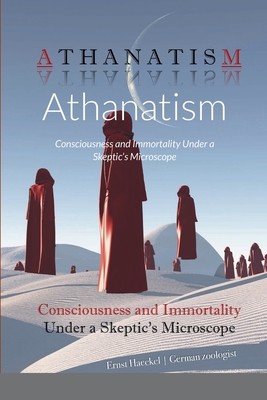
- We will send in 10–14 business days.
- Author: Ernst Haeckel
- Publisher: Lulu.com
- ISBN-10: 143576157X
- ISBN-13: 9781435761575
- Format: 15.2 x 22.9 x 0.3 cm, minkšti viršeliai
- Language: English
- SAVE -10% with code: EXTRA
Reviews
Description
I find it quite remarkable that an evolutionary zoologist working in the latter part of the 19th century could be so prescient about the utility of studying consciousness from a purely physicalist perspective. While Ernst Haeckel (1834-1919) was readily aware that many of his colleagues held dualistic views on the nature of self-awareness (a soul apart from the body), he saw more clearly than most that such supernatural conjecturing was both unnecessary and non-progressive. By focusing our attention on the sensible world, and in particular the brain, we can develop a much deeper and richer understanding of how and why consciousness must have emerged in the first place. If, however, we adopt a purely spiritualist perspective, arguing that the "soul" is non-material, then we have basically put a halt to any scientific study of the very biochemistry that gives rise to varying degrees of consciousness. Haeckel points out that our own self-awareness is a natural phenomenon and not something part from the world we inhabit. As he so clearly states, "We shall see that consciousness is simply a natural phenomenon like any other psychic quality, and that it is subject to the law of substance like all other natural phenomena."
- Author: Ernst Haeckel
- Publisher: Lulu.com
- ISBN-10: 143576157X
- ISBN-13: 9781435761575
- Format: 15.2 x 22.9 x 0.3 cm, minkšti viršeliai
- Language: English English
I find it quite remarkable that an evolutionary zoologist working in the latter part of the 19th century could be so prescient about the utility of studying consciousness from a purely physicalist perspective. While Ernst Haeckel (1834-1919) was readily aware that many of his colleagues held dualistic views on the nature of self-awareness (a soul apart from the body), he saw more clearly than most that such supernatural conjecturing was both unnecessary and non-progressive. By focusing our attention on the sensible world, and in particular the brain, we can develop a much deeper and richer understanding of how and why consciousness must have emerged in the first place. If, however, we adopt a purely spiritualist perspective, arguing that the "soul" is non-material, then we have basically put a halt to any scientific study of the very biochemistry that gives rise to varying degrees of consciousness. Haeckel points out that our own self-awareness is a natural phenomenon and not something part from the world we inhabit. As he so clearly states, "We shall see that consciousness is simply a natural phenomenon like any other psychic quality, and that it is subject to the law of substance like all other natural phenomena."


Reviews